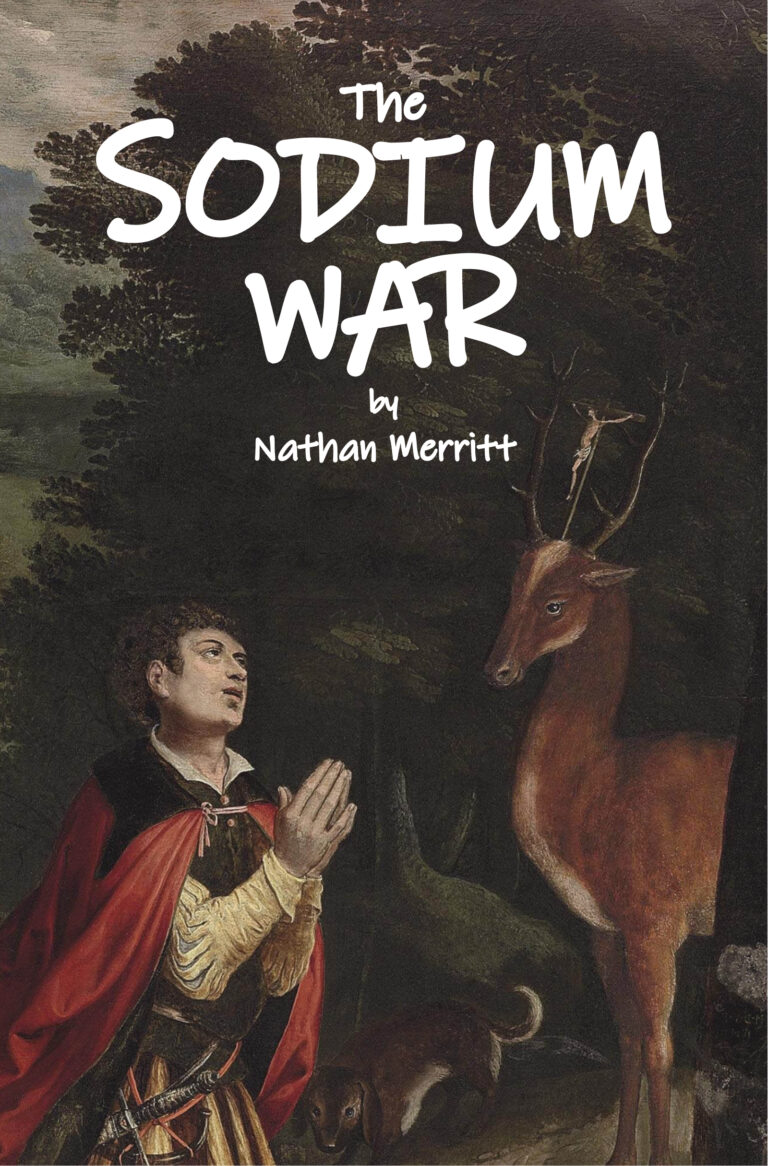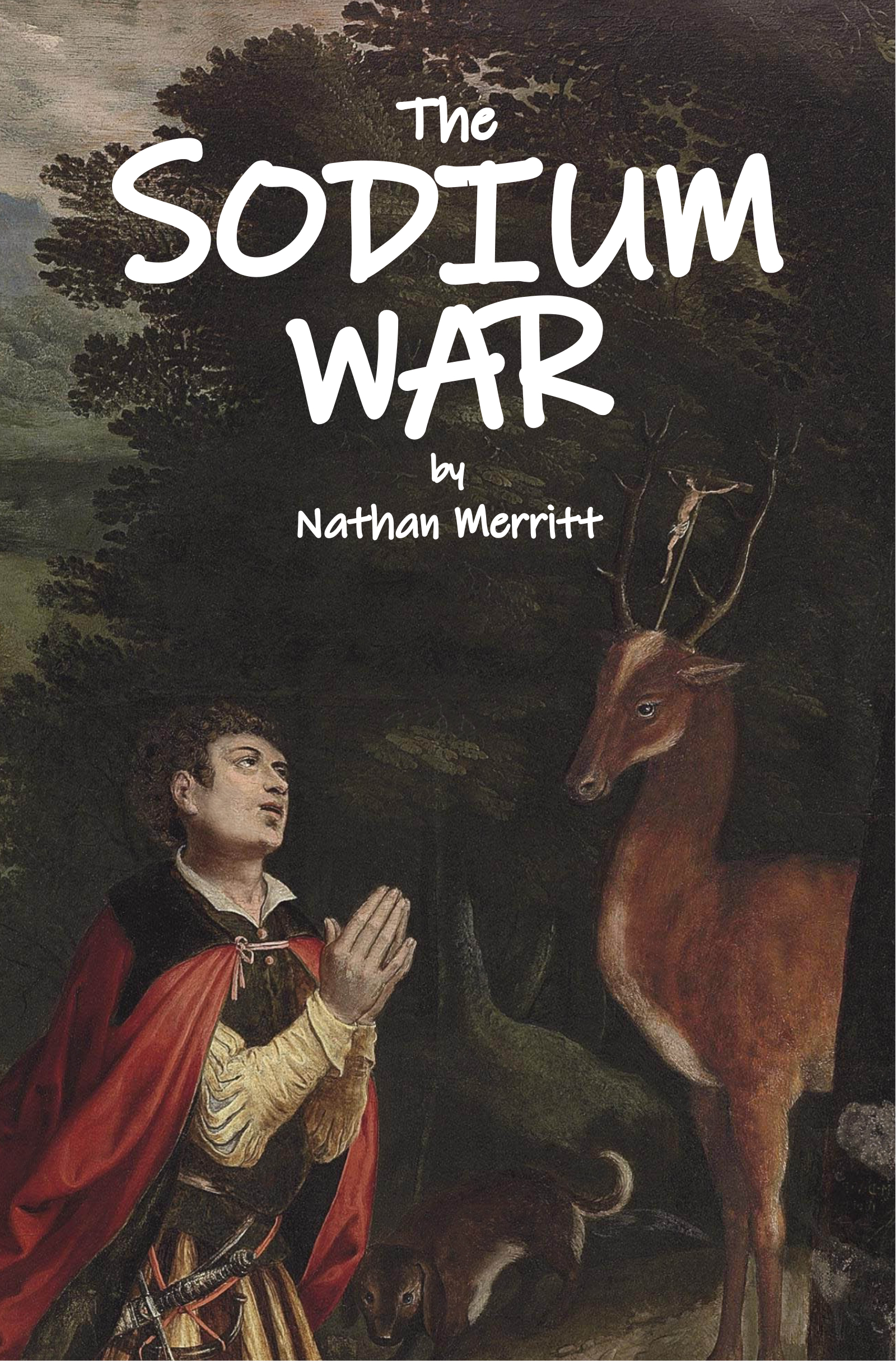A racist tyrant of a president overtakes the United States after a series of mass shootings in Nathan Merritt’s dystopian novel THE SODIUM WAR. The novel begins with young couple Rafe and Bri, reporters for a TV network who are called to film the scenes of the aftermath of a school shooting at which a young white boy set off the fire alarm and climbed to the roof of his school to shoot the students of color as they filed out of the building. The horrific events scar Rafe and Bri, and people of color and their allies across the country, but the violence empowers racist supporters of President McKendrick, who calls for all non-white people to leave the country. Several years later, the now-married Rafe and Bri are labeled “dissenters,” people who object to McKendrick’s racist policies, and they decide they must leave the country and run to Canada to avoid further violence and to find a way to help release American people of color from the terrors they now face each day: DNA tests, brutal murder on the street, and resurfacing slavery.
Rafe and Bri’s story is one of white allies fighting for their own lives as well as those of others, fueled by their Christian faith and their strong sense of morality. The book’s political agenda is a timely and noble one. Themes of antiracism, peace, and loving religious faith pervade the book’s every page. While at times the storytelling can be didactic and too on-the-nose with its moral purpose, the story Merritt tells is the perfect vehicle for his themes. Both the protagonists and the antagonists are purported Christians, offering two sides of the religious story. The book promotes Christianity but does not shy away from the hypocrisy of its many leaders at present and throughout history, shining light, for instance, on Martin Luther’s antisemitism, and revealing the dangerous potential of groupthink.
As a work of dystopian fiction, the book is successful in telling a story of both the brutality of humans when pushed to the extremes and the power of the morally just to persevere in times of oppression. Gory details of violence and political fervor ring true, making the sometimes unrealistic extremes of the story feel plausible and timely. Both the exposition and dialogue are clear and compelling, driving the suspenseful story forward. While Rafe is a Christian white man who sometimes reads like a “white savior,” THE SODIUM WAR is his story, and his alone, and does not claim to tell of the feelings of people of color, instead kindly suggesting Christians listen and empathize with those living under oppressive regimes.
The balanced view of Christianity and the plausible, timely detail of the lives influenced by an oppressive regime act as a counter to the protagonist of Nathan Merritt’s THE SODIUM WAR’s propensity toward a “white savior” attitude.
~Aimee Jodoin for IndieReader


